Penguin census from space
Scientists are using satellite mapping technology to count penguins in Antarctica. The latest results have shown that there are actually twice as many emperor penguins there as previously thought. Isn’t it nice when you hear some good news for a change?
The information provides a more accurate basis for researchers to monitor how environmental change is affecting the penguins. Satellite photography is proving to be a great way of keeping track of the penguins because their black and white feathers stand out against the snow, so the colonies are clearly visible on satellite imagery.
![]() read more
read more
Titanic, Icebergs and a Warming Arctic
There’s a lot of media hype surrounding the 100th anniversary of the loss of the Titanic on April 15th 2012. It started so early, I was beginning to get tired of it – until I came across an article in the Vancouver Sun focussing on the fact that icebergs are still a danger in our high-tech age and that danger could increase rather than decrease as you might think at first, as the Arctic ice melts.
![]() read more
read more
NASA scientist for carbon tax to tackle “moral issue”of climate change
Spending a few days in Scotland over Easter, I was interested to read that the NASA climate scientist James Hansen is to be awarded the prestigious Edinburgh Medal for his contribution to science. The Guardian quotes Hansen, 70-year-old director of NASA’s Goddard Institute for Space Studies and one of the longest-standing experts on climate change, as saying “averting the worst consequences of human-induced climate change is a great moral issue on a par with slavery”.
![]() read more
read more
Antarctic research with zero emissions
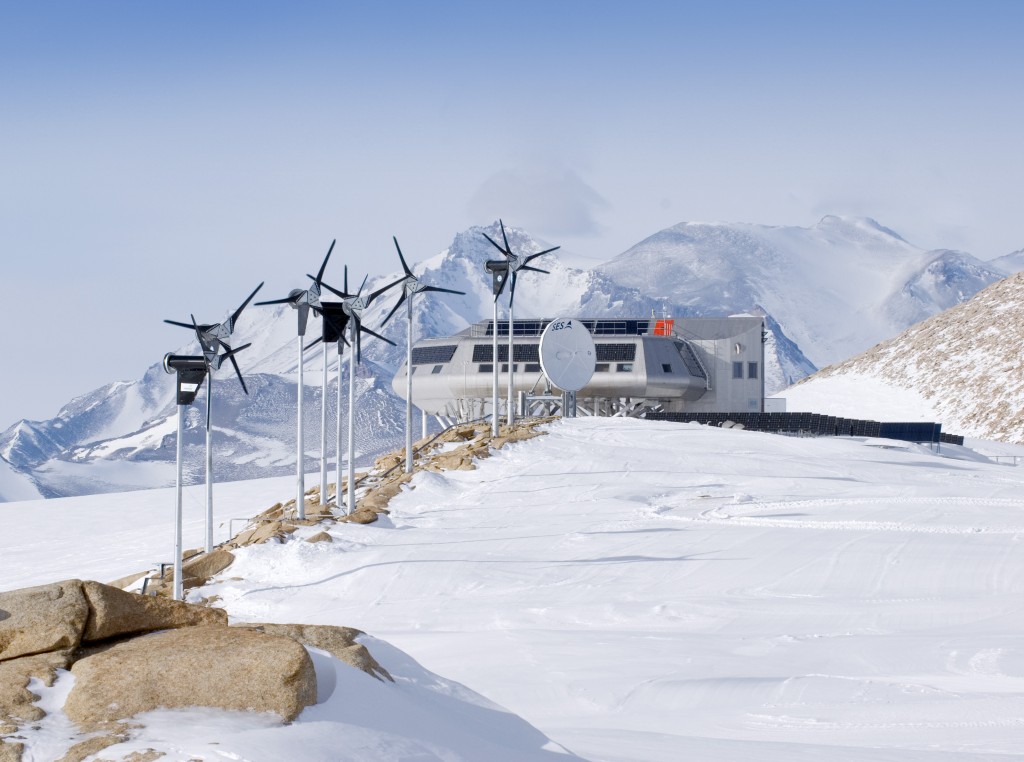
Turbines to make the best of the Antarctic winds. Photo by René Robert, International Polar Foundation
If there’s one place that definitely isn’t connected to the electricity grid and can benefit from using renewable energies, it’s got to be the Antarctic. Belgium, a country that might not be the first to come to mind when you think of polar research, has its own station, the “Princess Elisabeth Antarctica” station, and it is a “zero emissions” station. The summer research season has just come to an end, and the station says it was one of its most ambitious yet.
![]() read more
read more
Evidence indicates link between weather extremes and global warming
Some ice blog readers have asked about the evidence that climate change is responsible for the increase in extreme weather events as discussed in the last post. This is something which is discussed a lot both by scientists and the general public. After all, it’s hard to find a more talked-about subject than the weather. Just this weekend, the Potsdam Institute for Climate Impact Research has just published a study in the journal Nature Climate Change on this very topic. The scientists say the last decade was a record in terms of extreme weather and that the increase was “very likely” caused by human-made global warming. They say there is now strong evidence for linking heatwaves and extreme rainfall to the human influence on climate. The evidence is less conclusive for other types of extreme weather like storms, but the scientists say observed trends and basic physics suggest it is plausible to expect an increase there too.
The study looks at extreme weather across the globe, including record rainfall events in Japan, record drought in the Chinese Yangtse basin, the hottest ever summer in western Russia (2010) and numerous extreme weather events in the USA.
The study is based on physics, analysis of statistics and computer simulations. The scientists say basic physics make it likely that a warming of the atmosphere will lead to more extremes. For instance warm air can hold more moisture until it suddenly falls as heavy rain. The statistics show clear trends in temperature and precipitation data. Last but not least, complex computer models confirm the link between warming and record temperatures and rainfall. Now that’s a fair bit of evidence to be going on with, don’t you think?



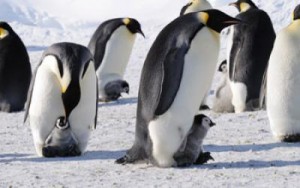

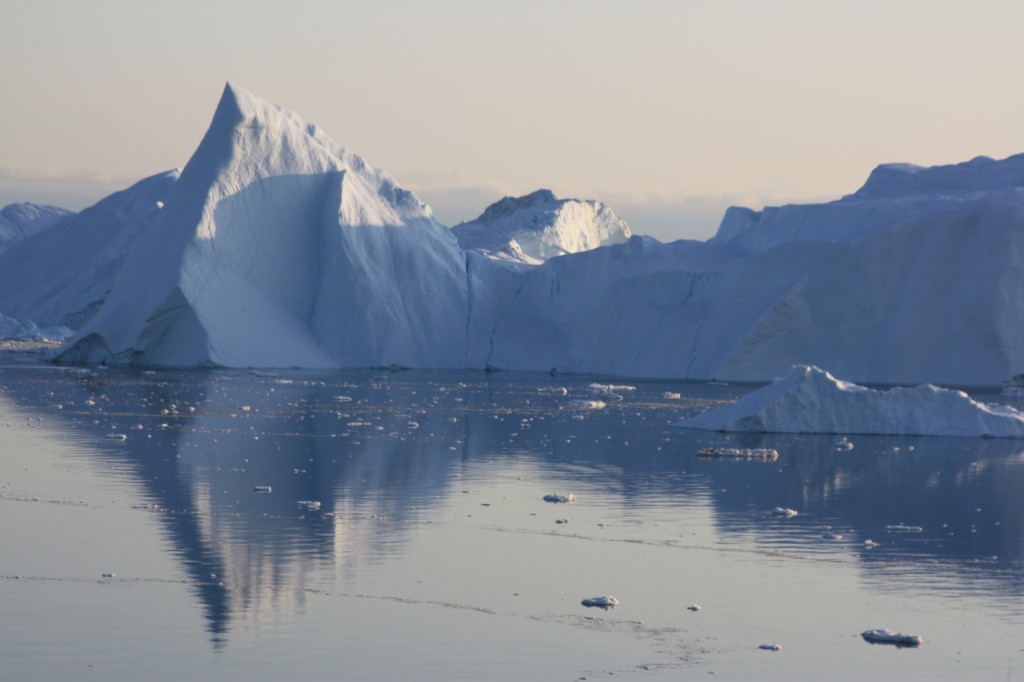
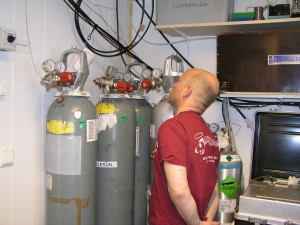
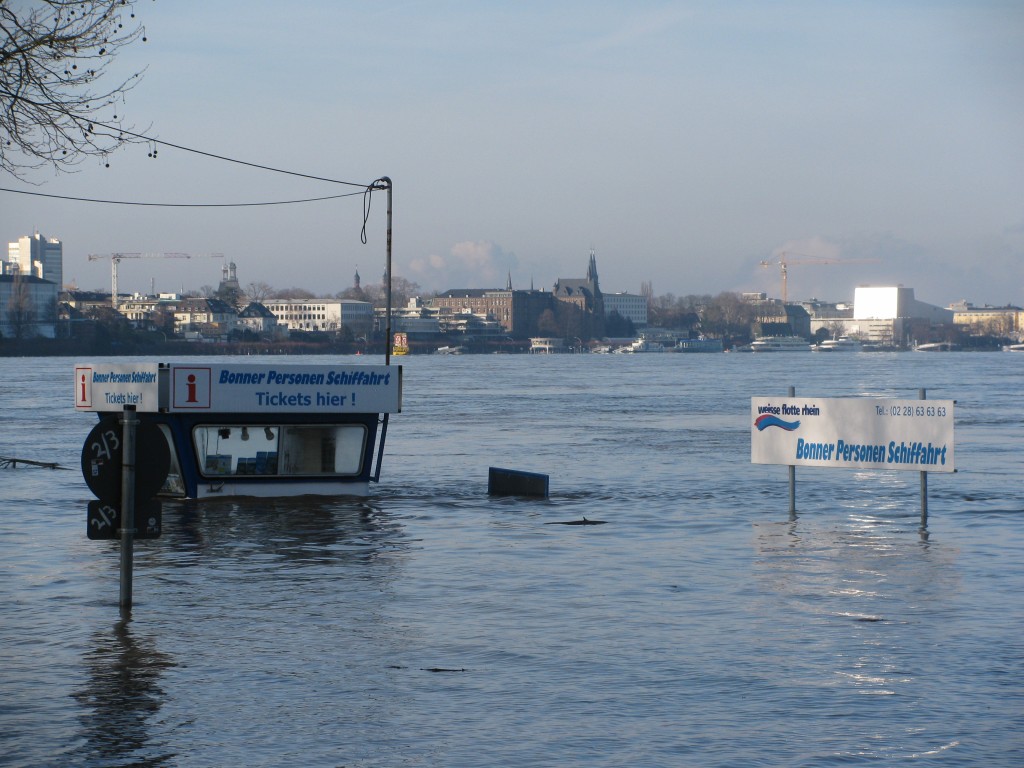
















Feedback